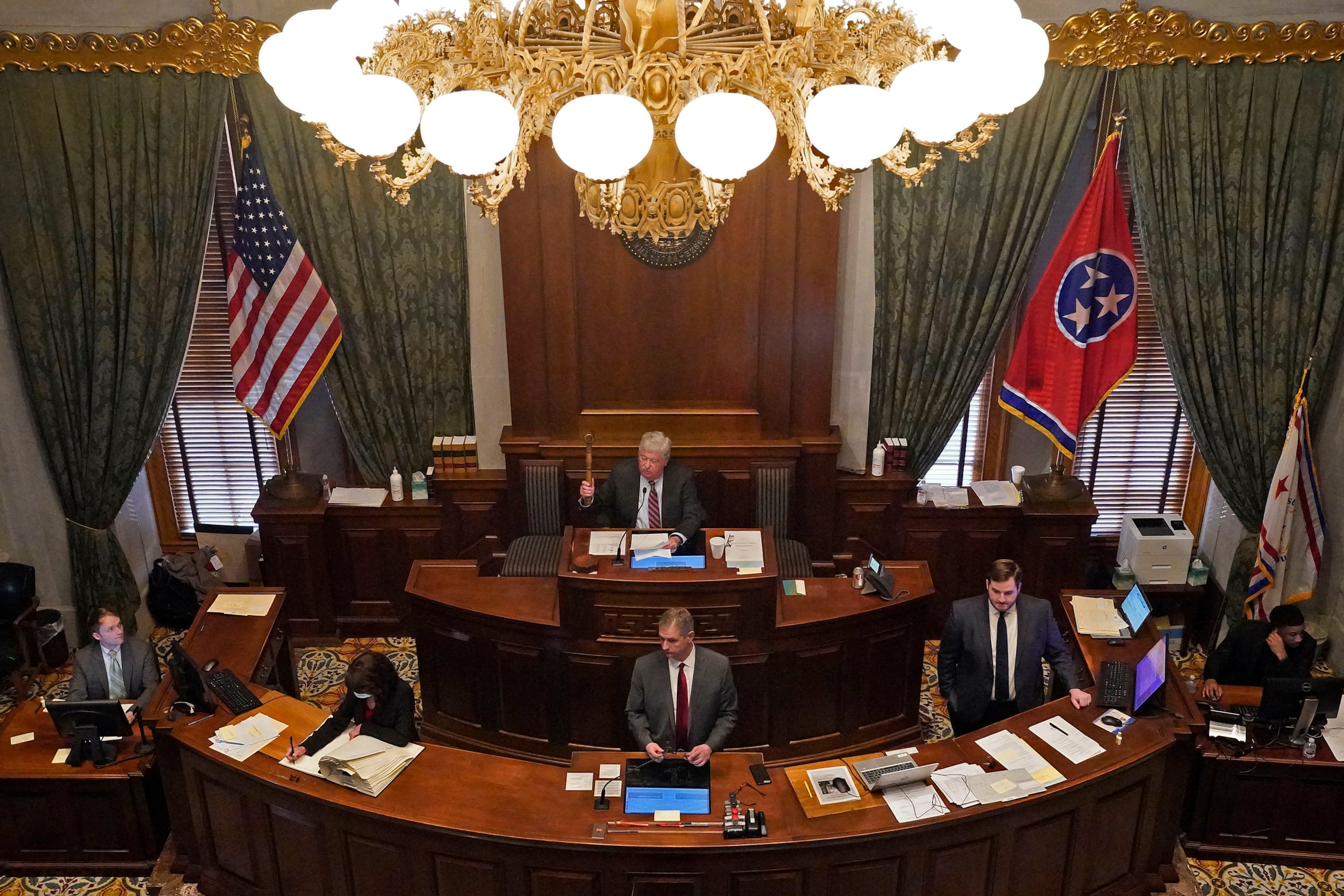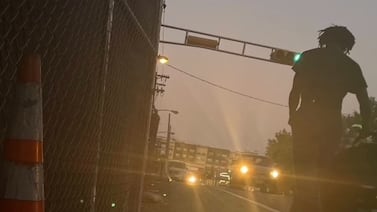The Tennessee Senate on Monday approved two Republican-sponsored bills that would expand and clarify eligibility for students to receive private school vouchers or enroll in charter schools.
Both measures passed 27-5 along partisan lines and now await action in House committees.
Sen. Jon Lundsberg, of Bristol, sponsored the bill to expand eligibility for Gov. Bill Lee’s education savings account program to students who attended private or home schools during the last three school years. The current law says a student must move directly from a public to private school to be eligible for the program, which launched last fall in Memphis and Nashville.
A second bill, sponsored by Sen. Todd Gardenhire of Chattanooga and Rep. Charlie Baum of Murfreesboro, would cap enrollment at charter schools — which are publicly funded but independently operated — at 25% for students who live outside the school district that authorized the charter. The House is scheduled to take up that bill on Tuesday in its K-12 subcommittee.
Meanwhile, House Speaker Cameron Sexton filed legislation that would let the Tennessee Public Charter School Commission approve charter schools to serve home school students, as well as residential boarding schools that are charters. Those charter applicants could apply directly to the state-appointed commission for authorization, without having to go through local school boards.
All measures seek to continue the Republican governor’s push to expand education choices for families. But critics say vouchers and charter schools are vehicles to privatize education at the expense of traditional public schools, which operate under stricter regulations, provide more transparency through their locally elected school boards, and serve the bulk of students who are disadvantaged or have special needs.
Under the education savings account bill, co-sponsored by Rep. Chris Todd of Madison County, voucher eligibility would be extended to students who did not complete a full year in public school after 2019, when the legislature approved the voucher law.
“The reason we’re doing this is because that legislation was locked up in the courts for a couple of years,” Lundberg said about ongoing litigation that halted the voucher program’s planned 2020 launch before a 2022 Tennessee Supreme Court ruling upheld the law.
Last week, Lundberg told the Senate Education Committee the change would open eligibility to many students who have applied to receive education savings accounts but were denied because they weren’t moving directly from public to private schools. So far, the state has approved 643 out of 1,273 applications, he said.
The voucher program, which provides taxpayer money for families to use toward private school tuition, is open to students in Memphis and Nashville but could be expanded to Chattanooga-based Hamilton County Schools under legislation approved by the Senate last week. That bill is scheduled for its first vote in a House subcommittee on Tuesday.
The charter school bill approved on Monday is backed by the Tennessee Charter School Center, an advocacy organization funded by pro-charter groups.
Currently in Tennessee, it’s generally up to the local school district that authorizes a charter school, as well as the governing body that oversees that charter school, to determine how many out-of-district students can enroll.
Gardenhire said his bill seeks to address confusion around those policies with a state law that would cap out-of-district enrollment at 25%, and give priority to students from within the school district.
Sen. Jeff Yarbro, who voted against Gardenhire’s bill, said local school districts should be able to control enrollment policies for the charter schools that they authorize.
“If they’re making that decision for the public schools in their district, that same policy ought to apply to the charter schools in the district,” said the Nashville Democrat. “I think that ought to be a uniform policy.”
Elizabeth Fiveash, chief policy officer for the Tennessee Charter School Center, testified last week that out-of-district student enrollment in charter schools isn’t an issue in the four cities that have charter schools. However, it could be in the future as the state’s charter sector expands.
She told members of the Senate Education Committee that charter schools statewide have a waiting list of over 10,000 students, most of whom come from within the authorizing district.
“This is not an issue that’s currently happening,” Fiveash said, “but we’re trying to make sure it’s clear going forward.”
Sexton’s legislation, which is co-sponsored by Lt. Gov. Randy McNally, would mark a significant expansion of Tennessee charter school law.
Under the proposal, the state could authorize charter schools to enroll homeschooled students from within any school district in Tennessee. Those schools would be required to provide classroom instruction at least three days per week, while parents providing instruction the other two days could use remote instruction provided by the charter school.
Lundberg and Rep. Mark White of Memphis, who chair education committees for their respective chambers, have signed on as co-sponsors.
Editor’s note: This story has been updated with information about Sexton’s charter school legislation.
Marta Aldrich is a senior correspondent and covers the statehouse for Chalkbeat Tennessee. Contact her at maldrich@chalkbeat.org.








